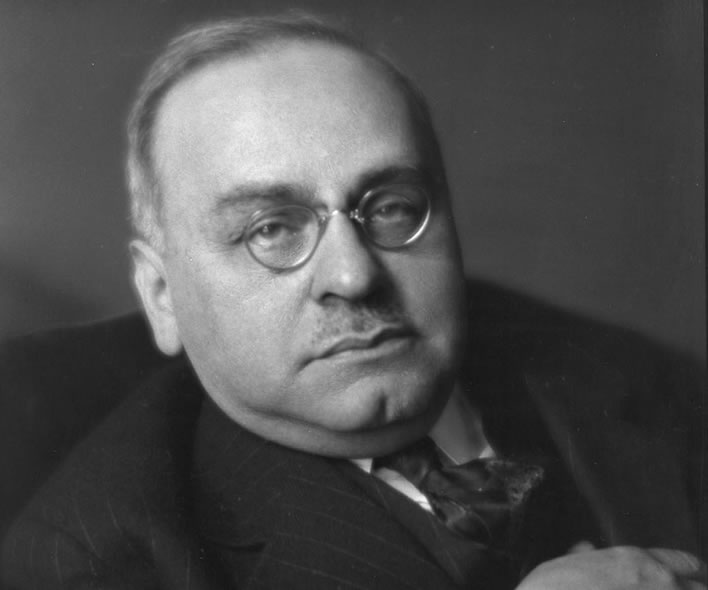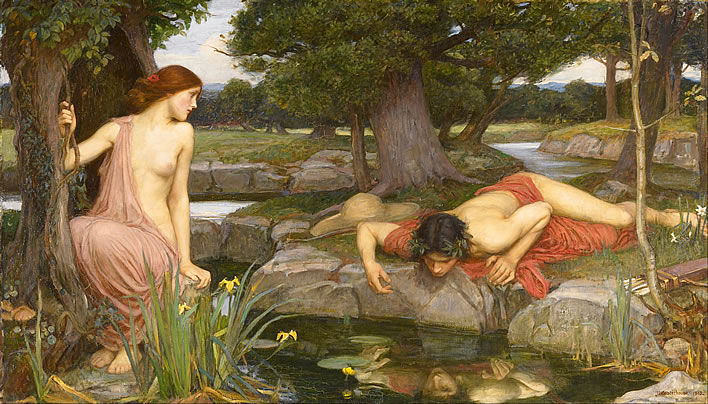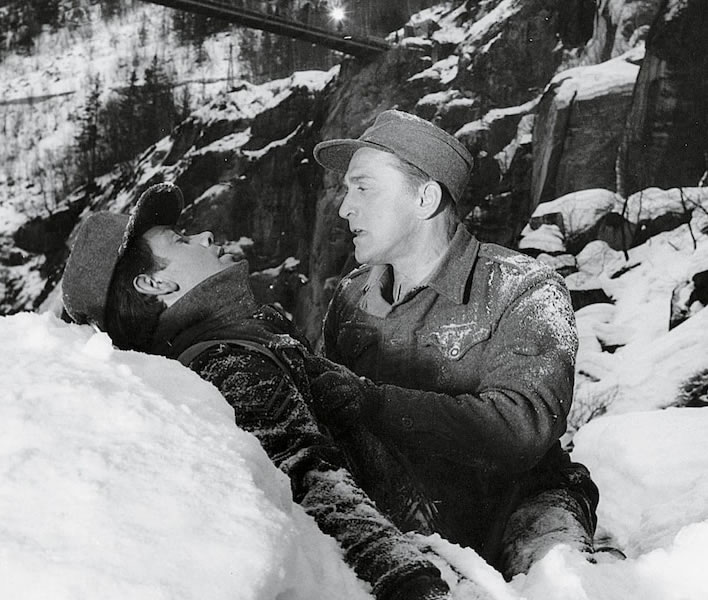Social media on the couch
Richard Law, UTC 2020-02-20 10:25
Austrian psychoanalysis, never out of place
Let us assert that the vast mass of humanity likes to be liked. Do we need to cite research for that? No, of course not – who doesn't like to feel liked, wanted or respected in some way? In contrast, those who don't want to be liked we would probably call sociopaths or even psychopaths in extreme cases.
Some psychologists might even argue that the motor of much of human interpersonal interaction is the desire to gain the liking or approval of others. We recall that old saying: if you want a friend for life, ask them to do you a favour.
So far, so normal. But pathological forms of this desire also exist.
The Austrian psychoanalyst Alfred Adler (1870-1937) identified a form of this trait which can develop into extreme manifestations: Geltungssucht, a 'craving for recognition' or, more precisely, a need to be considered as valuable, important etc.
For the punctilious and the googlers we ought to add that German offers a number of variants to refer to this concept, Geltungsstreben, 'striving for r.', Geltungstrieb, 'drive for r.' and Geltungsbedürfnis, 'need for r.' are the most common. From this variety we might get the impression that there is a lot of this kind of thing around in the German-speaking world. Perhaps.
Adler and his followers were particularly interested in the pathological extremes of this behaviour, particularly as it applied to the egomaniacal monsters who were strutting around the world stage in his time.

'So how long have you been having these feelings of inferiority?' Image: Photograph of Alfred Adler, ND, source unknown.
At the same time, Adler also supplied some comfort for us insignificants by asserting that this Geltungssucht was in fact the overcompensation of a Minderwertigkeitsgefühl, a 'feeling of inferiority'. Adler used the term Minderwertigkeitskomplex, which English speakers would know as the now famed 'inferiority complex'. When we insignificant beetles observe the titans of this world we can be sure that something must be lacking… Hitler has only got … men in large cars… nudge, nudge.
However, the preoccupation with the headline cases which show the extreme pathological form of this dynamic duo of Minderwertigkeitsgefühl and Geltungssucht distracts from the importance of its milder forms for the 'normal' or 'everyday' personality.
Most of us can muddle through our messy lives without much trouble from Dr Adler's complex. We have things to do, many distractions and only rarely do we have moments of reflection and introspection. The unexamined life is a life unlived, we are told, without mentioning an important corollary: at least for those whom Fortune has favoured, the unexamined life is a happy life.
Narcissism
Reflection and self-examination are, like alcohol, not bad in moderation, but spell disaster when overdone. Psychology offers a term for this, too, narcissism. In the Ancient Greek myth, Narcissus was the beautiful youth who was captivated and captured by his own reflection in the still surface of a pool, so much so that he completely ignored the plentiful allures of the nymph Echo.

John William Waterhouse (1849–1917), Echo and Narcissus, 1903. Image: Walker Art Gallery.
This metaphor of the personality type accurately contains its two main attributes: its self-absorption to the point of rejection of the real other and its addictiveness. The latter, of course, is aligned with the same Sucht, the 'craving', in Adler's desire for recognition.
The obsessive self-absorption and addiction of the narcissist can be added to the inferiority feelings and craving for recognition of Adler's model. Such self-absorption, combined with the focus on attaining recognition we can all understand. But the sufferer is also on the characteristic escalator of the addictive personality – as time goes by, ever bigger and ever more frequent doses of recognition are required to momentarily still the increasing craving.
The normal person rarely steps on this escalator: we take our praise from intimates and colleagues as it comes. In normal life we meet the lightly pathological form in those who go out of their way to please others, gain attention and garner compliments.
The original definition of narcissism largely overlapped that of egotism. It was at first assumed that narcissists, through their obsessive focus on themselves, were largely immune to criticism, even self-criticism.
More recently, however, a personality type of the 'vulnerable narcissist' has been postulated. In such people their underlying narcissism has to be frequently reinforced with praise and recognition. If this is lacking or replaced by criticism, the individual can be driven to an extreme crisis of self-respect, with feelings of inferiority often accompanied by depression and even suicidal tendencies. In effect, it is self-absorption without the egotism.
Thespians, upstaging and downstaging
It is in the media that we encounter extreme forms of craving for recognition combined with narcissism. Performers in films, on stage and in television and radio frequently crave regular and large doses of recognition. They need audiences, viewers and listeners. Their lives are lived in self-obsessed craving for admirers, and is combined with a permanent fear of losing them.
An amusingly written anecdote about the late Kirk Douglas by the actor David Weston illustrated the personality of the performing narcissist well. Weston himself appears to have kept his admirable and innately self-deprecating mental balance despite fifty years treading the boards. He obtained a role in the 1966 film The Heroes of Telemark, directed by Anthony Mann:
Later, during another stage of filming, we were having a cup of coffee when Douglas took me aside. 'I've been watching you,' he said. 'You're a good actor. You should get killed in this picture.' I was flattered but perplexed.
[…]
A week or so later, we began filming our escape after the explosion in the factory. We were running along the bottom of a gorge while guards sprayed us with machine-gun fire from the bridge above. Mann, who still didn't know our names, pointed me out and said, 'You're going to get shot in this next take.'
I was astounded. He hadn't given me any warning so I had no idea what to do. He added, 'You'll bring up the rear. I'll call out, "You're hit." Then you cry out your wife's name.'
Remembering Douglas's advice, I was determined to make the most of it. My heart was pounding as we went back up the frozen stream to our starting positions. Blanks were fired rapidly from above so we set off again. I was at the rear, right behind Douglas, and we were almost up to the camera position when Mann called out, 'You're hit!'
My moment had come. I staggered, lifted my eyes to the sky and cried out my wife's name, 'Sigrid,' before I sank into the snow, basking in the proximity of the camera. I could even see the lens. I had my close-up at last. It was worth dying for. Mann clapped his hands. 'Cut! Great. Let's print that one.'
I got up, brushing off the snow, as Douglas whispered something into Mann's ear. Mann nodded and said, 'Right. We'll go again. Do the same thing, but this time Kirk will come back and check you're OK.' We went back to the starting positions. Mann called 'action' and we pounded along the gorge, guns blazing from above. 'Arne, you're hit!'
I staggered and looked up again, but as 'Sigrid' was forming on my lips, I felt a grip of steel on my arm and was whirled round. The back of my head was facing the camera and the famous dimple was inches from my nose. Douglas was on a big close-up as he shook me and cried, 'Arne! Arne!'

David Weston's ten seconds of insignificance in his impromptu death scene in The Heroes of Telemark. Image: David Weston.
Compared to Kirk Douglas' giant doses of recognition, Weston got his trickle as a jobbing actor, mainly theatre, evenings and matinees over a fifty year career.
But even the film industry has been dwarfed by the size of the stage offered by those other twentieth-century monsters: the music business (modern and classical), radio and television.
All these media, old and new, attract narcissists and those who crave recognition. The successful are soon on the addiction escalator. It takes a strong personality not to be pulled down into the shining pool of self-absorption by the sprites of viewing figures and audience ratings. With success comes the fear of loss, of rejection, of decreasing popularity, of some possibly trivial mistake ruining a career, of the replacement by the newer model.
We insignificants watch these overpaid narcissists flutter across our screens until one day they don't any more, for whatever reason. The many addictive personalities among them fall for other addictions, or simply run out of love radiated towards them. 'If you can meet with Triumph and Disaster / And treat those two impostors just the same' – like the rest of Kipling's If, a guide for the robust mind.
Social media chick-grading
Until about 2010 these damaged ones of the media world were left alone for most of the time with their narcissism and recognition complexes. Many went off the rails in one way or another. Drink and drugs helped them along.
2010? That was when the various social media platforms took off. If television extended the small pool of thespians suffering Geltungssucht to a broader tribe, social media has now sown its seed in every smartphone and computer in the world. The social medianauts are all public figures now.
Facebook epitomises the core properties of social media. The platform was initially an attempt to produce a digital equivalent to the 'year book' so beloved of academic institutions in the USA, but with extra interactive tweaks that allowed young men to rate the hotness of the female students.
Growing rapidly out of this febrile, hormone-fuelled dorm accessory, Facebook (2004) – and all its social media rivals – has become a tool for channelling and amplifying Geltungssucht and narcissism with 'likes' (and now 'reactions'), 'follow - unfollow', 'friend - unfriend' and even 'block'. Facebook never left the chick-grading behind – it just extended it into other fields. Much of the time on social media is still spent effectively on some form of chick-grading activity, just with things other than chicks. There is little difference between the Facebook then and the Facebook now.
All these social media applications have become indispensable tools for the increase and propagation of vulnerable narcissism by those suffering from Geltungssucht. In 2005 YouTube was created and smartphones came with video recording and rearwards-facing cameras, allowing everyone to have their own stage and even watch themselves whilst performing.
The term 'social media' is a euphemism, 'rating media' would be a more accurate term, being the polite expression for chick-grading. The Geltungssucht is stimulated and sated by hundreds, thousands even millions of followers, who like or share contributions or rate them in various ways.
At the peak of the user pyramid are the so-called 'influencers', the agents of the marketing specialists, but even for complete newcomers, social media sites will immediately suggest possible followers and other people to follow. By simply creating an account, the addict receives the first shot of the precious recognition that will proceed to take over the life of the vulnerable narcissist. The strong and self-confident can use these tools for their benefit. The weak and vulnerable are immediately captured by the nature of the medium and lack the strength to avert their gaze from the pool.
Reference groups
'Following' and being followed by other users are the digital equivalents of that other core psychological concept, the 'reference group'. Reference groups are the people to whom you relate yourself – 'people like me', in other words. In the days before social media, reference groups were treated as subdivisions of social class and their members aligned in terms of various social factors such as income, education etc. – in common speech an activity known as 'keeping up with the Joneses'.
Once the individual has made the association with certain reference groups there is a great pressure on their members to synchronise all relevant aspects of lifestyle with them. Within the reference group there is enormous pressure to conform. Hence one now speaks of key members as 'influencers'.
Socio-economic and lifestyle differences between individuals and their chosen reference groups can be a source of great psychological discomfort to the afflicted. Deviations from those norms can cause sometimes intense psychological distress for those affected.
Those with sensitive ears for changes in language will have certainly noted how the language of normal discourse is now being shaped and influenced by the habits engendered and propagated on social media. Even categories of thought are unconsciously being adopted, categories which also serve to frame any subject in a way that makes it digestible for social media analysis.

As is so often the case, Caravaggio reaches the parts of the human psyche that other painters cannot reach. A darker, more self-obsessed and self-sufficient Narcissus, the nymph Echo no longer needed, is even grasping for the reflection of his own hand. Caravaggio (1571–1610), Narcissus, c. 1594-1596. Image: Galleria Nazionale d'Arte Antica, Palazzo Barberini, Rome.
Social media now binds its users from the moment they sign up to a platform to a range of intersecting reference groups. Friends invite new users to join them. Whether they realise it or not, new users are soon bound into the existing structures on the 'platform'. And their perception of their belonging in these reference groups and what others may think of them becomes crucial to their psychological well-being.
The narcissists of Love Island, living and dead
We have read in the last few days that a television presenter called Caroline Flack had recently been 'troubled' and ultimately hanged herself. There is some talk of providing 'support' that would avoid such tragedies in future, but such vulnerability is in the nature of the media. This nature cannot be made safe or regulated away, it is at its heart.
Shocked by Ms Flack's suicide, a woman called Rebecca Reid wrote of an interaction she had with Ms Flack on Twitter.
I did not know Flack personally, but I had exchanged messages with her, after some tweets and a magazine article I wrote last year about her relationship with Harry Styles. In the piece, I criticised the fact that Styles wasn't yet 18 when they started dating, following a throwaway comment she had made about there being "nothing wrong" with an age gap, while presenting Love Island. At the time I was righteous. Why shouldn't I "call her out" for her relationship with a teenager?
The messages she sent me arrived during the Love Island final. She was working, and presumably sending me Twitter direct messages during advert breaks. She told me that I didn't know what she was going through, or what the truth of the original story was.
I realised then quite how much what I had written had affected her. It seemed impossible to me that an article I – a relative unknown – had written could mean anything to a woman so successful, famous, rich and loved. But it clearly did. There she was, doing one of the most coveted jobs in television, seemingly unable to rid herself of my words.
Those readers who have plugged through our rather stodgy remarks above about the psychological complexities behind the craving for recognition will read Ms Reid's account of the social media interaction with Ms Flack and hear all the alarm bells of an extreme case of obsessive but vulnerable narcissism: Flack's intensive preoccupation with the medium, even at otherwise busy times, her extreme sensitivity to even low-status opinions and the concomitant, desperate need for recognition even from low-level members of her reference group.
The situation in this case is, in fact, much worse. Caroline Flack was most recently associated with a programme called Love Island, in which a group of young super-narcissists – pumped males and extensively made-up females – are confined in a house and spend weeks talking about themselves on camera whilst they 'couple', 'decouple' and 'recouple'. Dr Adler would have found this situation worthy of further deep study.
The males have been feminised until they are merely arm-candy for the females without any independent existence. Partners are dumped and exchanged, viewers and contestants can vote for them. Given the level of self-absorption and mirror-gazing involved, it is no surprise to learn that not only has the show's presenter committed suicide, but also two former contestants, Sophie Gradon (32) and Mike Thalassitis (26) have killed themselves. Each of the three hanged themselves after following the downward path of alcohol and drug addiction for a while.
Readers don't have to watch this strange programme, a glance at the website will be enough to see what it is about, or perhaps this:

Beyond parody: the Love Islanders and their baby dolls. Fake love and fake relationships end in fake babies. Images: ©Love Island.
The programme was first aired in 2005 with no success. Its reincarnation was launched in 2015 and is considered by those who know about such things to be a great success. Its success seems to have come from the addition of social media style bells and whistles. Five years after the first uptake of social media, viewers are now knowledgable enough to utilise the new format to brutally like and dump the fragile egos exposing themselves on this programme.
Readers should attempt to cast their minds back say ten years, before social media took off. Were people happier then? What have these 'platforms' done for us, apart from drive so many insane to some degree.
0 Comments UTC Loaded:
Input rules for comments: No HTML, no images. Comments can be nested to a depth of eight. Surround a long quotation with curly braces: {blockquote}. Well-formed URLs will be rendered as links automatically. Do not click on links unless you are confident that they are safe. You have been warned!